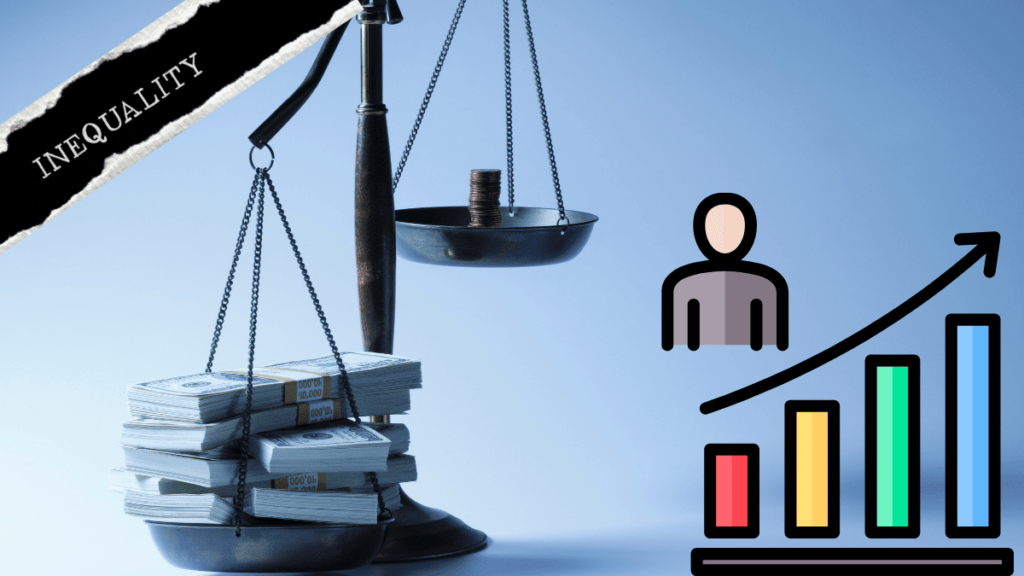Understanding the concept of human development
Human development refers to the process of expanding people’s freedoms and opportunities, enabling them to lead a fulfilling life. The concept of human development consists of three main components: a long and healthy life, access to knowledge, and a decent standard of living. The first component refers to the availability of health services, clean water, and sanitation, while the second component pertains to education and information. The third component includes access to income, housing, and other basic necessities of life. These three components are interrelated and mutually reinforcing, forming the basic foundation of human development.
The theory of human development has evolved over time, from focusing solely on economic growth and income to a broader understanding of the multidimensional nature of development. The human development approach emphasizes that development should be people-centered, empowering individuals to participate actively in the development process. This approach recognizes that economic growth alone is not sufficient to achieve human development, and that social, political, and cultural factors also play a crucial role.
Human development is essential in the global context, as it reflects the progress of societies in achieving better living standards for their citizens. The United Nations Development Programme (UNDP) introduced the Human Development Index (HDI) in 1990, which measures human development based on the three components mentioned above. The HDI has become an important marker of progress, and its use has expanded to include other measures of development, such as gender and income inequality. Understanding the importance of human development is critical to addressing the challenges of inequality and promoting sustainable development worldwide.
The emergence of inequality frameworks
Inequality frameworks refer to the set of concepts, theories, and methodologies that aim to understand and address the unequal distribution of resources, opportunities, and outcomes within and across societies[1]. These frameworks usually include indicators such as income, education, health, and access to basic services. The components of inequality frameworks can vary depending on the focus and context of the analysis. However, they all share the goal of identifying and measuring disparities and their underlying causes.
The evolution of inequality frameworks has been shaped by various factors, including changes in the global economy, advances in technology, and social and political movements[5]. The development of these frameworks has been influenced by different disciplines, such as economics, sociology, and political science. Over time, inequality frameworks have become more comprehensive, incorporating multidimensional aspects of inequality and considering their intersectionality. These frameworks have also become more sensitive to the context-specific nature of inequality, recognizing that different countries and regions face distinct challenges and opportunities.
The importance of inequality frameworks in the global context cannot be overstated. Inequality is a major international development challenge, with significant ethical implications and consequences for social and economic stability. The United Nations Development Programme (UNDP) has been one of the key actors in promoting the use of inequality frameworks in development policy and practice.
The UNDP’s Human Development Reports have highlighted the need to address inequalities as a core component of human development. Other international organizations, such as the World Bank and the International Monetary Fund, have also recognized the importance of inequality frameworks in their work. Inequality frameworks can provide a useful tool for policymakers and practitioners to identify and address disparities, promote social justice, and achieve sustainable development goals.
Convergence of human development and inequality frameworks
The fields of human development and inequality frameworks have significant overlap, and their convergence has become increasingly important in addressing global challenges. Human development frameworks focus on improving the well-being and capabilities of individuals, while inequality frameworks aim to address disparities in income, education, and other areas. However, both frameworks recognize the importance of addressing inequality in achieving their goals. For example, the 2019 report on inequality by the United Nations Development Programme (UNDP) uses a new framework that goes beyond income and includes education and health indicators. This convergence highlights the need to address inequality as a central component of a human development approach to global challenges.
The importance of the convergence of human development and inequality frameworks is underscored by the fact that high and rising inequality hinders progress towards the Sustainable Development Goals. Inequality in human development can also lead to lower intergenerational mobility in income, further perpetuating disparities. By incorporating a concern for distributional inequalities into the human development framework, policymakers can better address the root causes of inequality and work towards more equitable outcomes. This convergence can also inform policy recommendations for promoting regional development and reducing inequality.
Despite the benefits of the convergence of human development and inequality frameworks, there are criticisms and limitations to this approach. For example, some argue that focusing solely on reducing inequality may not necessarily lead to improved human development outcomes. Additionally, there may be trade-offs between addressing inequality and other policy goals, such as economic growth. However, by recognizing the importance of both human development and inequality, policymakers can work towards a more holistic approach that addresses the complex and interconnected challenges facing our global society. Overall, the convergence of human development and inequality frameworks provides a promising approach to addressing global challenges and promoting a more equitable and sustainable world.
The impact of globalization on human development and inequality
The impact of globalization on human development has been both positive and negative. On the one hand, globalization has facilitated the spread of technology, knowledge, and ideas, leading to increased access to education, healthcare, and other essential services. On the other hand, globalization has also led to the exploitation of labor and resources, resulting in increased poverty and inequality. The intersection of globalization and human development is complex, and the effects are often context-specific, with significant variations across countries and regions.
Similarly, globalization has had both positive and negative effects on inequality. While globalization has contributed to the growth of the global economy and the reduction of poverty in some countries, it has also led to increased income and wealth disparities within and between countries. The impact of globalization on inequality is influenced by a range of factors, including the nature of trade and financial flows, the structure of the global economy, and the policies of individual countries[15]. The interaction between globalization and inequality is a critical area of research, as it has significant implications for social, economic, and political stability.
The intersection of globalization, human development, and inequality is a complex and dynamic process. The relationship between these three factors is influenced by a range of factors, including historical legacies, political institutions, and cultural norms. The World Social Report 2020 highlights the deep divides within and across countries, despite significant economic growth and improvements in human development[17]. Sylvia Walby’s book, Globalization and Inequalities, provides a comprehensive analysis of the changing forms of social inequality and their intersectionalities. Understanding the intersection of globalization, human development, and inequality is crucial for policymakers, researchers, and practitioners seeking to promote social justice and sustainable development.
Case studies on the convergence of human development and inequality frameworks
Several countries have implemented convergence approaches, which aim to close the income gap between developed and developing countries. For instance, South Korea has made significant progress in reducing poverty and inequality over the past few decades through a combination of targeted policies and economic growth. Similarly, Brazil has implemented a range of social programs that have helped to reduce poverty and inequality, including the Bolsa Familia program, which provides cash transfers to poor families. These case studies demonstrate the potential for convergence approaches to improve human development outcomes and reduce inequality.
While some countries have seen success with convergence approaches, others have experienced failures or limited progress. For example, several African countries have struggled to achieve sustained economic growth and reduce poverty and inequality, despite implementing policies aimed at convergence. Additionally, some countries have experienced a “converging divergence” phenomenon, where income inequality has decreased while other forms of inequality, such as wealth and education, have increased. These examples highlight the complex and context-specific nature of convergence approaches and the need for careful analysis and evaluation of their effectiveness.
Lessons learned from case studies suggest that convergence approaches must take into account a range of factors, including political and institutional contexts, historical legacies, and social norms. Additionally, a focus on human development, rather than just economic growth, is crucial for achieving sustainable and equitable outcomes. Furthermore, addressing broader societal problems, such as discrimination and exclusion, is essential for reducing inequality and promoting social progress. Overall, a nuanced and comprehensive approach to convergence is necessary for achieving meaningful progress towards human development and reducing inequality.
The future of human development and inequality frameworks
The future of human development and inequality frameworks is likely to see significant developments in understanding the complex relationship between these two concepts. Education disparities have been found to explain most of the inequality within low-developed countries, while differences in standard of living are most important within developed countries. In recent years, there has been a shift towards more comprehensive frameworks that go beyond income to also consider other factors such as health, education, and social inclusion. These new frameworks have the potential to provide a more nuanced understanding of the nature of inequality and its impact on human development.
However, the future also presents significant challenges and opportunities in addressing global inequality and advancing human development. While inequality has been recognized as a major international development challenge[6], progress has been slow, and disparities persist. The call to action is to challenge the status quo and take action to tackle deep-seated as well as emerging inequalities. The early studies argued that there is a positive effect of inequality on growth, explained via savings or incentives. However, the negative impact of inequality on social cohesion, political stability, and economic growth has been increasingly recognized. The challenge is to find effective policies and strategies to address inequality while promoting sustainable and inclusive development.
A human rights framework can provide a basis for addressing inequality and promoting human development. Affirmative action measures can be justified when they present reasonable, objective, and proportional means to address discrimination. However, there are also arguments that inequalities do not always damage a society or reflect an unfair world. Inclusive economics or economic inclusivity has emerged as a progressive disciplinary perspective on how to achieve inclusive development[25]. While progress has been made in reducing global inequality over the last thirty years, within-country inequalities have increased. The future challenge is to find ways to balance economic growth with social inclusion, promote human rights, and address the root causes of inequality.
In conclusion, the convergence of human development and inequality frameworks has become increasingly important in addressing global challenges. While human development focuses on improving people’s lives, inequality frameworks highlight the disparities that exist within societies. The overlap of these two frameworks has led to a more comprehensive approach to addressing global inequality.
However, there are criticisms and limitations to this approach, and the impact of globalization on both human development and inequality cannot be ignored. Case studies have shown that convergence approaches can be successful in some contexts but may not work in others. As we look to the future, there is potential for further developments in these frameworks, but challenges must be addressed, and action must be taken to advance human development and reduce global inequality.



